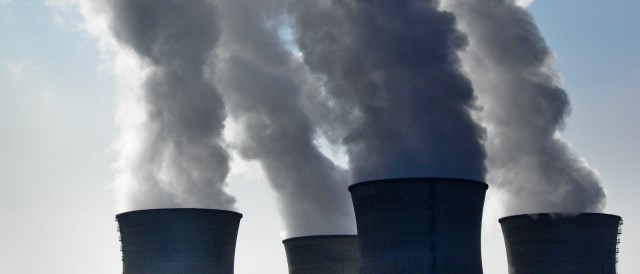Just a few weeks after complaining about how French labor unions don’t support renewables, Craig Morris now gets to eat his hat. He says he’s glad to do so if it helps get the word out that France’s energy transition will create more than 600,000 jobs by 2030.

In France, the wind for nuclear might slowly be turning: Among others, the French labor union CFDT has started to openly speak out for renewables. (Photo by TtoTheStreet, CC BY-SA 2.0)
I get to eat my chapeau, for French labor union CFDT is now openly calling for an energy transition to renewables and efficiency – exactly what Germany is doing – in order to create jobs. Granted, the labor union I complained about (CGT) still remains wedded to nuclear, but the news that its competitor has thrown its weight behind France’s energy transition is significant. The CFDT is the largest labor union in France in terms of the number of its members – 860,000, compared to around 680,000 in the CGT.
And it gets better from there – the CFDT bases its conclusion on studies conducted by French think tank Négawatt, which I wrote about favorably here and here.
Before I get specifically to the figures for nuclear vis-à-vis renewables, it’s worth pointing out that Négawatt covers the entire scope of energy consumption. Indeed, most of the jobs created will be in renovating buildings – a whopping 473,000. The organization sees a shift from new buildings to renovations, however, so 404,000 jobs would be lost in the new construction sector, leaving us with a net gain of 69,000 jobs by 2030 – around 11 percent of the 632,000 net jobs to be created.
As the labor union points out, these estimates are in line with similar studies, such as one conducted by French energy agency Ademe, whose “medium” scenario forecast 825,000 new jobs by 2050.
The renewables sector is to have created 335,000 new jobs by 2030, taking the country up to a total of 534,000 green jobs (so France has around 200,000 green jobs today) – a modest figure considering that Germany already has around 380,000. But then you have to subtract 116,000 jobs lost in the sector of non-renewable energy, leaving us with an estimated 219,000 new jobs. Finally, the labor union points out (PDF in French) that the energy transition will create “jobs that cannot be sent overseas.”
The PDF is worth reading in its entirety if your French is up to it. I especially enjoyed the estimates of how many people work in the nuclear sector today after finding a wide range recently myself – from around 130,000 to more than 400,000. The paper says that French nuclear giant EDF has even claimed that a million jobs that would be lost if France phased out nuclear completely. Apparently, the nuclear sector in France employees closer to 75,000 people.
Perhaps the most encouraging aspect of the labor union’s argument is the focus on what Germany calls Mittelstand and what the French call PME – small and midsize enterprises. The labor union says 99 percent of French firms have fewer than 50 employees and that CAC 40 corporations are laying more people off than they are hiring.
So is the tide turning in France? Maybe. Public opinion about nuclear remains divided, but a recent poll found that more than 80 percent of the French believe the energy transition is “somewhat or very urgent” – and more than 90 percent support renewables. Nonetheless, Phillippe Quirion, the lead author of Négawatt’s study says he remains pessimistic: “I think that our president, prime minister, and the vast majority of Parliament don’t care at all about climate change, nuclear risks, etc. And our unions defend employment where workers are unionized but not really elsewhere.”
Craig Morris (@PPchef) is the lead author of German Energy Transition. He directs Petite Planète and is writes every workday for Renewables International.
Please note that you can find the key findings and a full translation of our book “German Energy Transition” in French here.
Keep your hat on Craig, French Union system is complicated and you didn’t understand the system 🙁
Cfdt is open minded for transition but they are not on the run within the most influent CCAS:
http://fr.wikipedia.org/wiki/%C3%89lectricit%C3%A9_de_France#La_Caisse_centrale_des_activit.C3.A9s_sociales_d.27EDF-GDF
Have a look here and check out who has been in charge since 1947: Cgt ! http://fr.wikipedia.org/wiki/Caisse_centrale_d%27activit%C3%A9s_sociales
This is one of the basic income of Cgt, the CCAS has more than 5.000 people working for them and an annual budget >800 Mill. Euros, they get – like you mentioned earlier 1 % of the turnover of the French energy groups, some money, that they don’t want to loose…